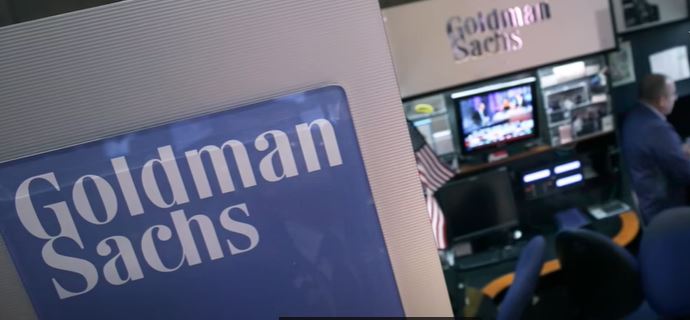Goldman Sachs stated on Monday that its first-quarter profit increased by 28%, driven by a rebound in debt underwriting and dealmaking that strengthened its investment banking division.

For the three months ending March 31, profit increased to $4.13 billion, or $11.58 per share, from $3.23 billion, or $8.79 per share, in the same period last year.
In order to serve our clients and satisfy our shareholders, we are sticking to our plan and concentrating on our core competencies, according to CEO David Solomon.
On Friday, executives from JPMorgan Chase and Citigroup, competitors, posted earnings that exceeded market estimates and pointed to better circumstances for mergers and acquisitions.
Before the bell, shares increased by 3%. Compared to an almost 8% decline for this year, they have increased by roughly 1% thus far.
Leading M&A advisor Goldman advised on several of the largest transactions of the previous year, including Exxon Mobil’s $60 billion acquisition of Pioneer Natural Resources.
The underwriting of bonds and stocks increased as companies felt more comfortable raising funds in the capital markets.
Thus far, the Federal Reserve has been successful in guiding the economy toward a “soft landing,” which involves increasing interest rates and controlling inflation in order to prevent a significant slump.
Goldman’s investment banking revenues increased 32% to $2.08 billion due to higher fees from underwriting debt and stock issues and providing deal advisory services.
While revenue from trading stocks increased 10% to $3.31 billion, revenue from fixed income, currency, and commodity trading increased 10% to $4.32 billion.
Global merger and acquisition activity increased by 30% in the first quarter to reach around $755.1 billion compared to the same period last year, according to Dealogic statistics.
Goldman is cutting back on its disastrous consumer banking business after suffering billion-dollar losses. Significant writedowns have already been made on GreenSky, the home improvement lender that it acquired and then sold two years later.
CEO Solomon, who supported the retail drive in the past, has come under fire for the approach.
Institutional Shareholder Services (ISS), a leading proxy adviser, recommended shareholders to vote in favor of the bank splitting Solomon’s current positions as chairman and CEO.
In addition, Goldman has canceled its co-branded credit card program with General Motors, and the company’s comparable arrangement with Apple appears to be in jeopardy.
A year earlier, the bank’s provisions for credit losses were $171 million, but because of probable credit card and wholesale loan defaults, they increased to $318 million.